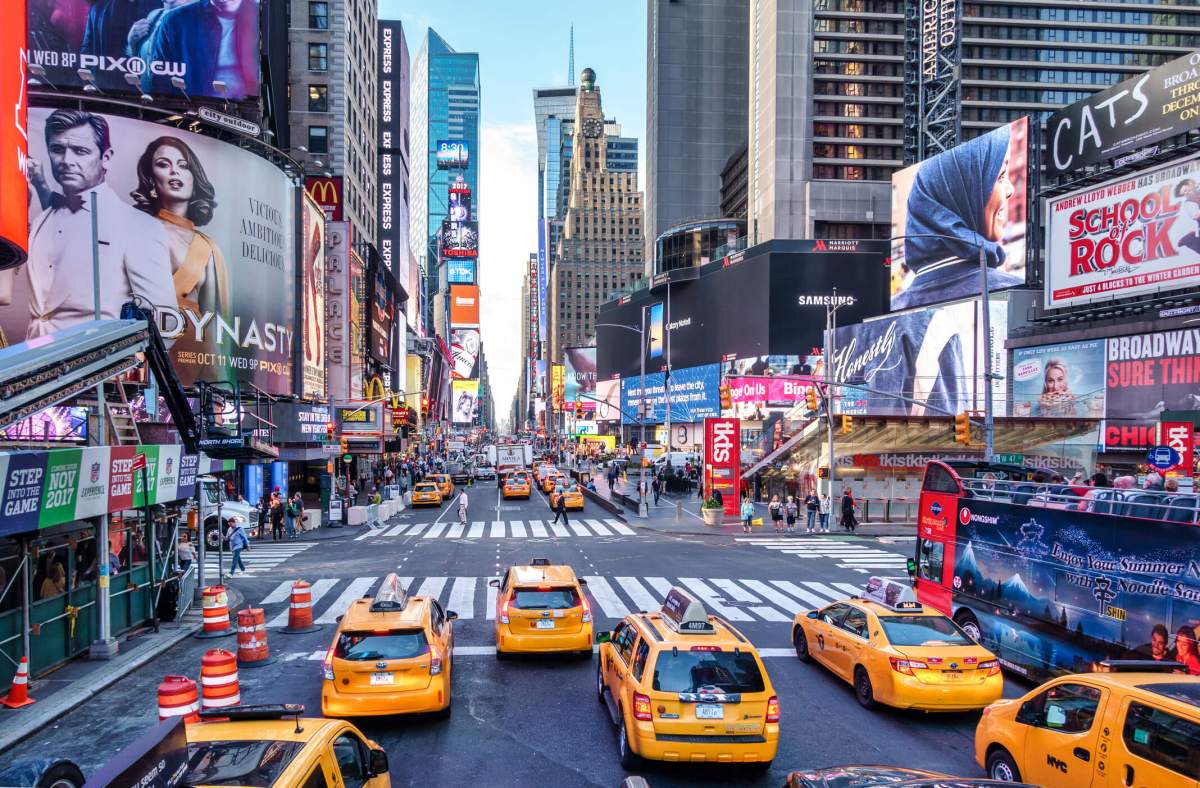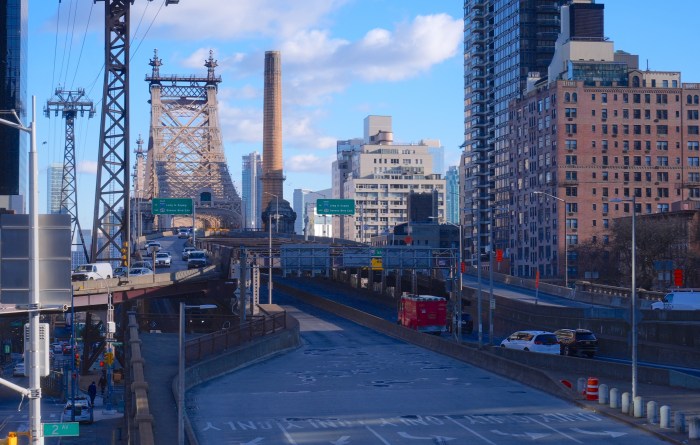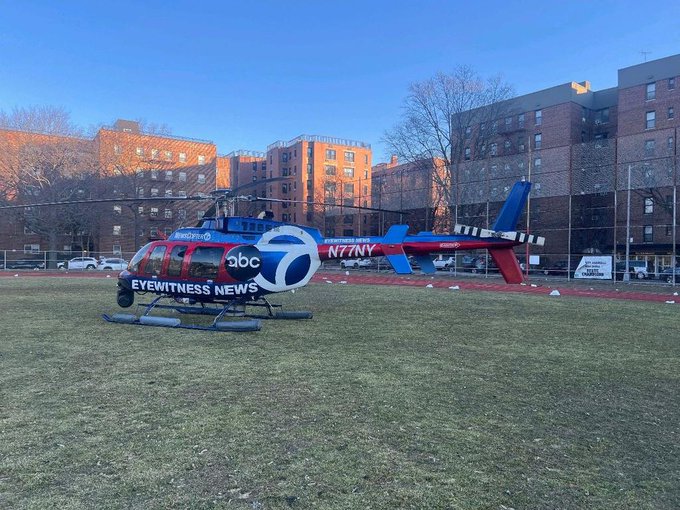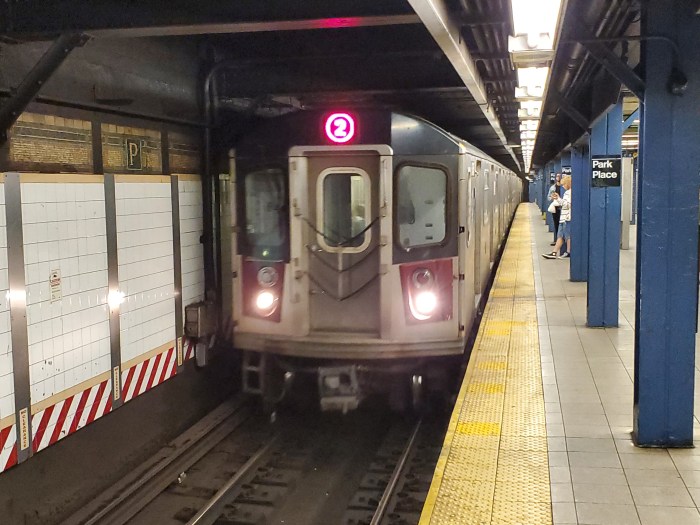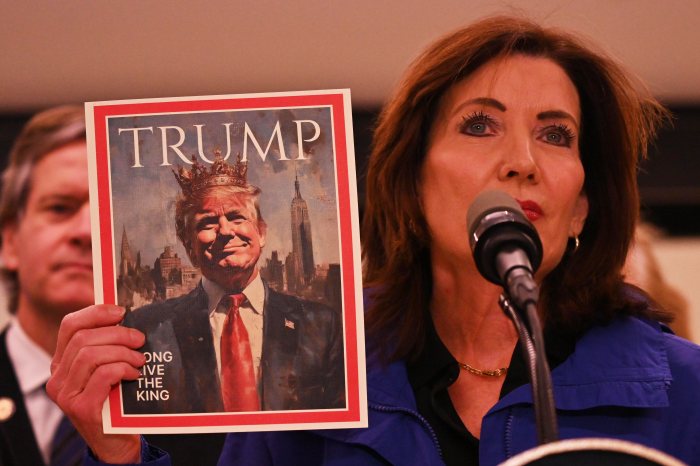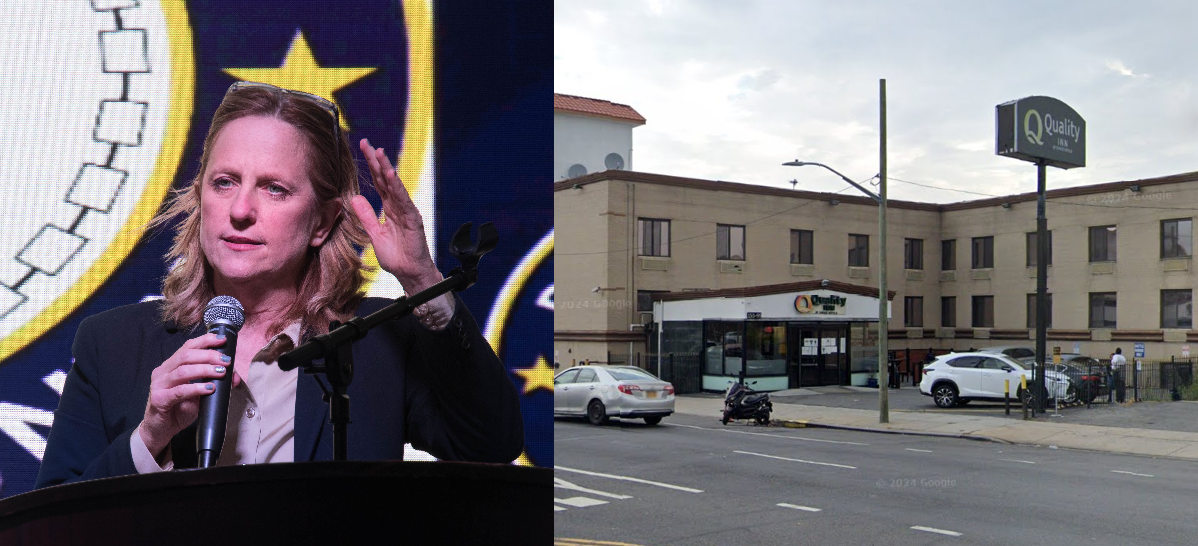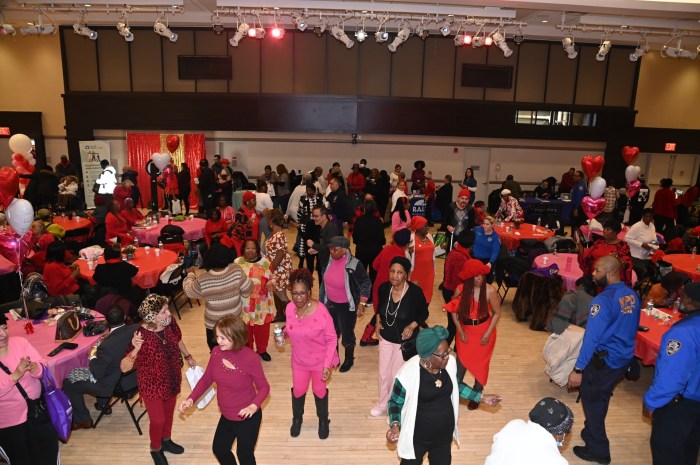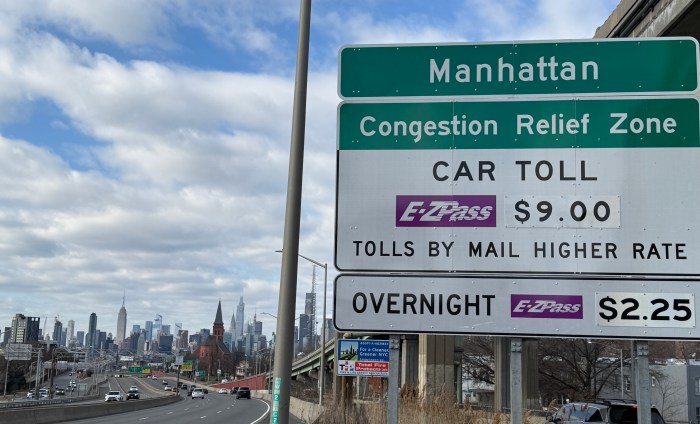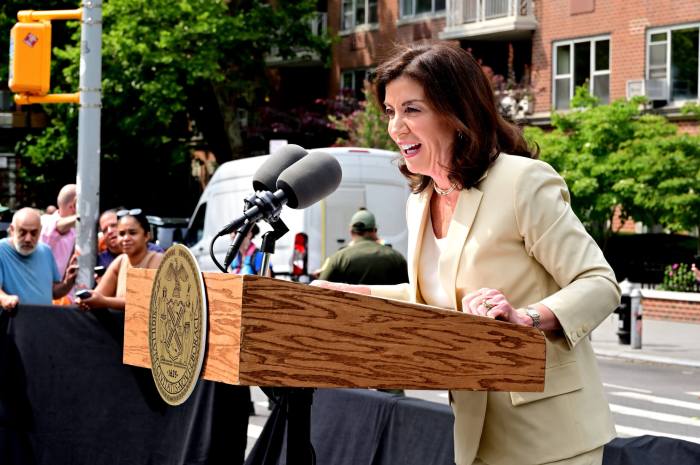More than two dozen New York City pols signed a letter calling for taxi and for-hire vehicle drivers to be exempted from congestion pricing, on the eve of the second meeting of the board tasked with devising rates and rules for the tolling program.
The group of 25 state Senators, Assemblymembers, and City Councilmembers addressed their letter to the Traffic Mobility Review Board (TMRB) and its chair, Carl Weisbrod, and wrote that a congestion surcharge should be added on to passengers’ fares, rather than paid for by drivers. They argue this would “further the goals of congestion pricing without negatively impacting passenger demand or drivers’ income.”
“We call on you to exempt taxi and FHV drivers and limit any congestion pricing surcharges on the industry to a nominal per trip fee on Uber and Lyft rides paid by the riders,” reads the letter, which was signed by Democratic pols from the party’s centrist and progressive camps. “The surcharges cannot come out of drivers’ hard-earned income or leave them in further economic strain.”
The letter was first reported on Wednesday morning by City & State.
Taxicab and app-based drivers have spent months pressing the MTA to exempt them from the tolls, contending the congestion charge for entering Manhattan south of 60th Street would be the third such charge on cab drivers. Yellow cab drivers have paid a 50-cent surcharge since 2009, and a separate $2.50 charge since 2019, on trips below 96th Street in Manhattan, while FHVs have paid a $2.75 surcharge for the same since 2019.
The price of the tolls is subject to deliberation by the TMRB, but for passenger cars could range from $9-23. In its environmental assessment for the program, the MTA committed to limiting charges on taxi and FHV drivers to once per day, even if they cross into Manhattan multiple times.
But Lyft, the world’s second-largest rideshare company, says that means the charge must be borne by drivers, as the company cannot conclusively determine if one of its drivers had already crossed while driving for a different app, like Uber. Many rideshare drivers work for both.
The driver workforce is largely comprised of immigrants. Cabbies in particular have faced dire financial predicaments in recent years, shouldering massive debt burdens to finance the medallions required to drive their cars. The city is presently administering a financial aid program providing relief to cabbies, many of whom bought their medallions only to see the value of them plummet.
“The impact of an additional surcharge being taken from drivers’ income — on top of the taxes and surcharges drivers already pay to the MTA — or a significant drop in ridership because of a high per-trip fee would be devastating for Uber and Lyft drivers, and simply unsurvivable for taxi drivers,” the pols wrote.
Cabbies are just one of dozens of groups seeking an out from congestion pricing.
The MTA declined to comment. The TMRB’s second meeting will take place at 3 p.m. Thursday at MTA Headquarters in lower Manhattan.
After a long environmental review process, the program is set to be implemented in the middle of next year, and a contractor has begun setting up overhead gantries to collect tolls. Still, the program faces headwinds with a lawsuit filed by New Jersey seeking to terminate it.



